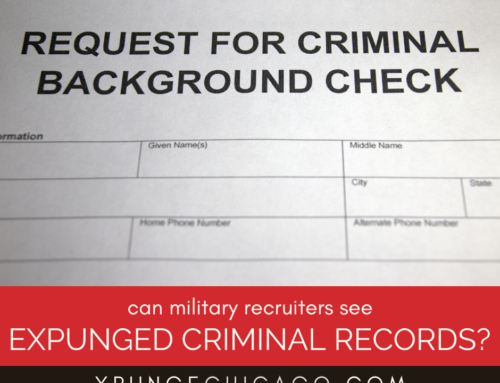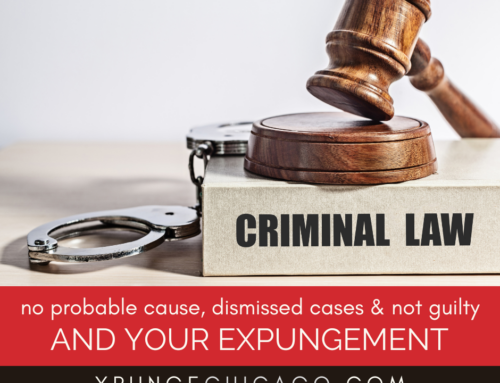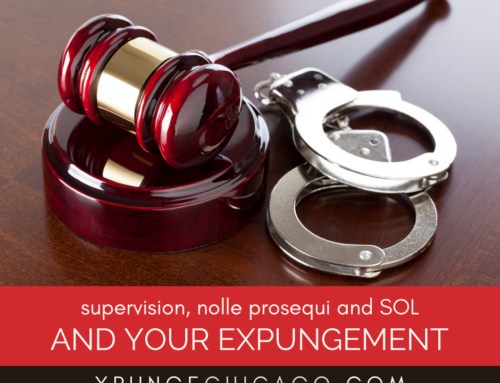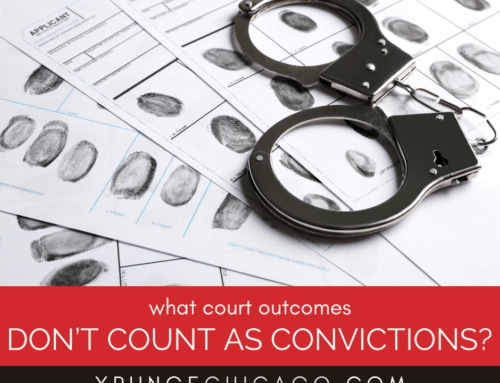
When your criminal record is expunged in Illinois, it is removed from public view, giving you a fresh start. However, understanding who can still access these records is crucial for managing your future interactions, especially with law enforcement.
Can Cops See Your Expunged Records?
Navigating the implications of an expunged record is important for maintaining your privacy and legal rights. This guide explains the following:
- Definition of expungement
- Police access to expunged records
- Exceptions to the rule
- Impact of expungement on other legal records
- How to verify the expungement of your records
Here’s a closer look at each.
Definition of Expungement
Expungement in Illinois means that your criminal record is completely destroyed or returned to you as if the offenses never happened. This process is different from sealing, where the record still exists but is hidden from the general public. Even an arrest creates a criminal record with the Federal Bureau of Investigation, which you can learn about in Your Complete Guide to FBI Record Expungement.
Related: Illinois expungement information
Police Access to Expunged Records
Generally, police do not have access to your expunged records because these records are either destroyed or removed from all official databases. This means that during police checks, your expunged record should not appear.
Exceptions to the Rule
There are exceptions where expunged records might still be available. For example, if you apply for a job in law enforcement or with certain government agencies, they might find out about your past offenses, even if they are expunged, due to specific legal provisions or uncleared databases.
Impact of Expungement on Other Legal Records
Expungement of your criminal records does not automatically clear your name from other related records, such as court appearance records, unless specifically included in the expungement order. It’s important to understand what parts of your record are cleared and which parts might remain accessible. Your attorney can give you the guidance you need.
Related: Should you run your own criminal background check?
How to Verify the Expungement of Your Records
To ensure that your record has been properly expunged, you can request a copy of your criminal record from the Illinois State Police or check with the courthouse where your expungement was processed.
FAQ About Expunged Records and Police Access
Here are some commonly asked questions about whether police can see your expunged records in Illinois. If you don’t find your question here, please call our office for more personalized assistance.
Can Local Police Access My Expunged Record for Routine Checks?
No, local police cannot access your expunged records during routine checks. Once expunged, your records are removed from public databases and should not appear during standard police checks.
Will My Expunged Records Show Up in FBI Background Checks?
Expunged records should not appear in FBI background checks for civilian purposes. However, for certain positions, particularly those involving national security, agencies may have provisions to access complete histories, including expunged entries.
Can Police Use Expunged Records in New Criminal Cases?
Police and prosecutors cannot use expunged records as evidence in new criminal cases. The records are treated as though they never existed, providing you legal protection against their use in court.
What Is the Difference Between Expungement and Sealing?
Expungement completely removes your criminal record as if the offenses never happened, while sealing hides the record from public view but remains accessible to certain government entities.
How Do I Know If I’m Eligible for Expungement or Sealing?
Eligibility depends on the type of conviction or arrest, your criminal history, and how much time has passed since the case was closed. It’s best to consult with an expungement lawyer to determine your specific eligibility.
Related: 3 mistakes to avoid when you expunge your record in Illinois
What Can I Do If My Application for Expungement or Sealing Is Denied?
If your application is denied, you may have options to appeal the decision or reapply after correcting any issues that led to the denial, such as inaccuracies in the application.
How Much Does It Cost to Expunge or Seal a Record?
Costs can vary based on court fees, legal fees, and other expenses related to obtaining necessary documents. Fee waivers may be available for those who cannot afford the costs.
Do You Need to Talk to an Attorney About Expungement or Sealing?
If you’re tired of your criminal past coming back to bite you, we may be able to help. Call us right now at 847-920-4540 or fill out the form below so we can talk about your case.
Oops! We could not locate your form.















